Abuse of office (part one)
Friday, 27.05.2011.
17:38

Abuse of office (part one) Those who made their first million under Slobodan Milosevic, after democratic changes became owners of thousands of square metres, primarily in Belgrade, and hectares of land in Serbia. Although they live and work in Serbia, majority of them practically have a status of foreign investor, because they mostly buy everything hidden behind their various offshore companies. That way the origin of their wealth remains unknown. Thanks to the system and people in power between 2000 and today, the very same businessmen became this country's pillar. Since they employ large numbers of people, the country depends on them and cannot do anything against them any more. It is one of the reasons state institutions have been virtually working for the businessmen for years. Huge money, which circulates among the same people, gives them power and position, which they can use to blackmail politicians, form governments that suit them, appoint their own people in relevant institutions, simultaneously financing both the position and opposition, thus closing the circle. Representatives of state institutions proposed and the Serbian Parliament MPs adopted laws which allow businessmen to do everything legally, state budget is damaged, to citizens' cost, since the privatisation turned into sale and purchase of real estate, and not recuperation of economy and ruined factories. Many businessmen were allowed to acquire exclusive locations in Belgrade by buying a ruined factory, company, or print shop, without the construction land included in the price, which in fact is worth the most. Since 2000, based on various regulations and decisions, authorities have sold or rented property which already has old owners despite failure to adopt the law on denationalisation or restitution. Simultaneously, representatives of competent institution bombastically announced they would deal with the construction mafia, which robbed many citizens of their money. That, however, means nothing until competent institution first deal with those in power who also damage the budget through abuse of political power. The price of square metre of residential space in Belgrade may have risen in recent years due to bribe which investors pay to relevant institutions. The construction mafia exists primarily due to corruption and abuse of official position in the administration, but you cannot discuss it unless you talk about corruption on the state level. Both aspects of corruption exists on the city level, when investors, due to bribery, acquire permits, and on the state level, when various suspect companies close large deals with the state not because they are the best, but because representatives of relevant institutions take a percentage for a rigged tender or issuing of a permit. Details and examples of all this you will see in the following six episodes of the Insider. According the Insider's research, today's largest owners of square metres of office and residential space, but also hectares of land in Belgrade and Serbia, are businessmen from Serbia, who made their purchases through privatisation or at auctions, hiding behind various offshore companies. That is how the wrong impression was created in the public that after privatisation the majority of property is owned by foreign capital. However, behind this capital are businessmen from Serbia, who earned their first million under Slobodan Milosevic. Aleksandar Vujicic, Management for Fight Against Money Laundering: According to the textbook, you have three phases of money laundering: investment, disintegration and integration. The disintegration is disintegration of capital. One of the ways to do it is through offshore companies, where a large number of companies are formed, capital is moving from one company to another, thus muddling the money's origin. The third phase is integration. That is when the capital returns to the country and real estate is bought in the process of privatisation. People who are involved in the economic system of a country this way in time acquire not only economic power, but also political power, they become respected, which certainly represents a danger for our country. Business deals though offshore companies are not forbidden by law, but are potentially damaging for the budget. Such business, mostly due to low tax rates, is practiced all over the world. But in serious countries every large company which has business deals through offshore, has a mother company, registered in the country in which the company's owner resides or lives. That way it is much more difficult for him to hide the profit he is making somewhere abroad, for which he would otherwise have to pay the tax on salaries in his own country. However, this is different in Serbia. Businessman X, who lives, works and makes money in Serbia, who is a resident of this country, does not have a mother company registered in Serbia, but a company registered here only on paper. However, owner of the company is an offshore company from Cyprus, Dutch Antilles, Luxembourg, or Bahamas, which can eventually be traced, after insight into registry, to the same man who is the company's owner in Serbia as well. Countries which belong to the offshore zone, the Tax Heaven, charge no taxes on profit. When a businessman from Serbia has a company here, simultaneously owned by his offshore company, it allows him to siphon the money out to the company's accounts, without the money being taxed there. Instead, the money can be withdrawn or spent for personal needs in Serbia, where he otherwise lives, for which, according to the law, he would have to pay taxes on personal earnings. Under the valid laws, every person who is a resident of Serbia, or who resides in Serbia longer than 183 days, is obliged to report all his profits, wherever earned, and pay taxes on it here. In practice, however, the people who own offshore companies and all the company's property is owned by those companies, often receive salaries here as presidents of their company's boards of directors, which are registered in Serbia only on paper, and pay taxes on the salary, just like all the other employees. However, the competent institutions, even under the law, have no possibility of checking whether the businessmen eventually use the money they made in Serbia, and take outside through their offshore companies, for a luxurious life here, for which, just like in other countries, they would have to pay taxes. Zoran Vasic, Tax Management: We are talking about something that is quite present in Europe. It is a difference between what we show we made in a year, and the economic power, in the form of real estate, houses, apartments, possibly movables, yachts, cars, show much bigger value. But what is the origin of money used to acquire all this? Tax authorities rarely check up on that, because we still do not take into consideration the economic power of tax payers and connection with these companies. B92: But why is that not done? Zoran Vasic: We have a legal framework we have to stick to and when it comes to property, we have no competence to establish whether someone reported all of their property or not. It is not clear why the authorities entrusted such an important tax check, which would certainly provide more money for the budget, to the local administration instead of tax authorities. At the same time, due to the world economic crisis, Serbian government first announced introduction of a solidarity tax, additional tax and then larger tax. In each case, a new tax affects the middle and poor layers of population, while those who make the most and are considered millionaires, would still, under valid laws, have all the tax relaxations. The largest investors in Serbia became local businessmen after 2000. As such, the state offered them various tax relaxations. Thanks to the laws adopted by the Serbian Parliament in recent years, those who own the largest companies, instead of paying the largest tax, due to tax relaxations, pay virtually less, while the biggest percentage comes to the budget from excise, or tax on added value paid by citizens. Zoran Vasic, Tax Management: You are correct. There is a smallest number of tax payers and companies who make biggest profits. If it weren't for the relaxations and tax stimulations, they would be the biggest tax payers. B92: But who is responsible for this? Surely not them? They just use legal opportunities. Zoran Vasic: We are not talking about responsibility here, it is the legal framework. The legislator certainly knew why it had allowed these tax relaxations. We have remarked on several occasions it could be in order to attract investment in our country, because, even we do not count tax relaxations, we have the smallest tax rate in Europe. Tax management can do only what is allowed by the law, and the law, the Insider concludes, is pretty much in favour of the businessmen. Tax on profit is reduced from 20 to 10 per cent, tax on added value is not being paid for export, and if the same person is owner of the company both in the country and in an offshore zone, it can easily be always in the red on paper. In addition, the people who are the largest investors in Serbia today, primarily local businessmen, are virtually exempt by law from paying tax on the company's profit. Zoran Vasic, Tax Management: The legislator has a decree which allows the investor who invests over 600 million dinars and employs over a hundred workers in the monitored year to be exempt from paying tax on the company's profit in the period of ten years. The country's economic policy is to create an atmosphere of free flow of foreign capital. These are tax stimulations, which are very attractive for large investors. B92: But that is ridiculous. Everything is adjusted to businessmen from Serbia, because the foreign capital that is in Serbia today is not a foreign capital at all. These are local businessmen who, on top of it all, have tax relaxations as if they were foreign investors? Zoran Vasic: They don't have tax relaxations as foreign investors, but as large investors. But I cannot talk about the origin of money. I don't have the facts and it is not in the tax management's competence. Two companies in Serbia who build the most are Delta and MPC. They, however, do not have a mother company in this country. They are only registered here. Owners of their companies are in fact offshore companies in Cyprus and Holland. That way, everything they bought in Serbia today is formally owned by foreign companies, which is to say their offshore companies. With this kind of business, although allowed by the law, the state budget is potentially losing millions of euros. Since all the property is virtually owned by their foreign offshore companies, if one day they should decide, for example, to sell everything they own in Serbia, the value measured in billions, they would once again not pay taxes on capital profit, which is also allowed by the law. As opposed to MPC owned by Petar Matic, who primarily deals in purchase, construction and selling of real estate, Delta owned by Miroslav Miskovic also deals in production. The only difference being that Serbian public knows a lot about Miroslav Miskovic, although the owner of Delta is not giving statements to press and appears in public once a year at his company's celebration. To the accusations made by former employees of the former state company Geneks that Delta emerged under Slobodan Milosevic simultaneously with the destruction of Geneks, Delta's representatives respond it is utter nonsense. Aleksandar Marovic, who worked in Geneks for 25 years as director of retail, publicly warned several years ago that Delta was being created by destroying Geneks. He left Geneks when Miskovic became its owner in 2008. Aleksandar Marovic, head of retail at Geneks till 2008: You can simultaneously follow the fall of Geneks on one side, and rise of Delta on the other. It is all connected to the leading man of Geneks, Andrija Dozet, who was a general manager at the time, the main figure and link between Delta and Geneks. It is sufficient to say that Delta Holding was formed by five companies from Cyprus, three of which were owned by Andrija Dozet, to see how all the capital was gradually transferred from Geneks to Delta. Geneks' business was closing down, we were closing down branch offices, and Delta was opening them. We closed our bank, Delta opened its bank. You be the judge if it is a coincidence. In a written response to the Insider, Delta company says: "The birth and development of Delta has in no way been connected to the ruin and downfall of other companies, Geneks included. Delta had no business dealings with Geneks, it did not take over its business, staff or property." The written response also emphasises: "Delta is using offshore company as a legal way of doing business, because it is the natural right and need of the capital to seek the most favourable conditions. Delta has ended last year with 25,160 employees, and this year plans to open new jobs and increase the number of employees to over 30,000. In that respect, in 2009 the company will pay gross 210 million euros for salaries of the employees alone." Dejan Racic, general manager of Delta's branch company Delta Real Estate, says that Delta does not hide anything and does everything in line with regulations and laws. Dejan Racic, general manager of Delta Real Estate: We invest a lot, we acquire our locations transparently, either by buying from private or other stockholder companies. We are buying buildings or locations from companies on which we will build something, or, as in couple of cases such as Delta City, we obtain them through a public tender, where we beat someone who offered a lower sum. Miroslav Miskovic's Delta owns tens of thousands of square metres, but also several thousand hectares of both farm and construction land. According to the Insider's findings, Delta obtained the plot in bloc 12 without a tender or auction. They exchanged the plot with owner of Prima-Stan Goran Aleksic, who owned a plot next to Delta's headquarters in New Belgrade. According to the law, all land belongs to the state, while companies and factories have only the right to use that land. The land without buildings on it must go to an auction or tender, organized by the Directorate for Construction Land, which is why remains a mystery how can Energoprojekt sell a land owned by the state. Dejan Racic: Energoprojekt was selling the location. We negotiated with them. B92: What was it selling? It cannot sell a land. Dejan Racic: They were selling the location, we were competing with another two companies, I think both from Israel, and we bought it, in summer 2007. B92: So it was not an auction? Dejan Racic: It was not an auction. Energoprojekt is not obliged to go to an auction, it entered a process of negotiation with several other... B92: But the land cannot be owned by Energoprojekt. The land belongs to the city. Dejan Racic: Energoprojekt had the right to build on that land. It sold that right. B92: So it sold the permit? Dejan Racic: Yes. The building was under construction. B92: But there are no buildings there. Dejan Racic: They had the permit, from a legal point of view, from the moment you have a permit to build, you have a building under construction. You may have not actually started building anything, but legally it is considered building under construction. That is the way we bought that location. Delta bought the plot on which Delta City was built through a tender. Although its opening was attended by representatives of the authorities, the facility was opened without the permit for use, which they received six months later. The permit of use means that the technical check of the building was finished and that it is safe for visitors and employees. B92: How is it possible that Delta City was opened without permit of use? Dejan Racic, general manager of Delta Real Estate: It is possible. We are not hiding that fact, it was opened with all papers which guaranteed safety of citizens who visit Delta City. B92: Well, it was not. Dejan Racic: The technical check was carried out and we received a fire-prevention approval. That is the most important thing. We decided to open the facility, because in practice there are a lot of facilities in Belgrade which have been opened for decades and still don't have a permit of use. Take the example of Hyatt, which does not have it to this very day. Belgrade Arena was opened, European basketball championship was held there, and only then they got the permit of use. Delta City was opened on 31 October, 2007. According to the documentation the Insider obtained, the City's Commission for Technical Check carried out technical examination of the facility on 5 June 2008, eight months later, and the permit was issued on 23 June, 2008. Dejan Racic: We could not do it at the same time, obtain the permit of use and technical check. It is practically the same thing. It is the question of estimation. It was done technically, but not administratively. The head of the secretariat at the time was Nenad Komatina. Nenad Komatina, Secretary for Urbanism, 2004-2008: Delta City was opened without permit of use, but Delta City was built with a construction permit, in line with the main project, with permit for construction, necessary documentation and it is up to the investor and inspection whether they would allow the opening of a facility which does not have a permit of use. It is controlled by the competent inspection, it is not controlled by the Secretariat for Urbanism. B92: But you issue a permit of use? Nenad Komatina: We issue it eventually, when they send us the results of technical check. B92: Well, all right, but Delta City is not exactly a kiosk... Nenad Komatina: Of course. B92: ...so that you do not pay attention to it. Wasn't it odd for you to know that the permit of use was not issued, but that the facility was still opened, the authorities being present at the opening? Nenad Komatina: As I said, it is not our job. It is not in the competence of the Secretariat for Urbanism, but the construction inspection. Beside Delta City, 85,000 square metres on three hectares in New Belgrade owned by Delta holding, the Hemslade offshore company in Cyprus, which belongs to Miroslav Miskovic, also owns the following: Beside Delta City, 85,000 square metres on three hectares in New Belgrade owned by Delta holding, the Hemslade offshore company in Cyprus, which belongs to Miroslav Miskovic, also owns the following: Delta Holding recently bought Geneks's property in Belgrade at a public auction for around 149 million euros and became the owner of the Continental hotel, formerly Intercontinental, 72,225 square metres of apartments, office space, tennis courts and energy plants cumulatively knows as Geneks. Delta acquired a large number of exclusive locations in downtown Belgrade by buying trade companies. It bought the building of the bankrupt Invest bank, on 6,000 square metres on Knez Mihailova Street, mostly shops of Delta Sport today. Delta Tower is being built in Bloc 20, on 1.2 hectares, and the new facility will have 120,000 square metres. Next to the Red Star stadium, 58,000 square metres of a residential complex called City Apartments is being built on 1.2 hectares. On Ada Ciganlija, Delta is building Delta Power, the first retail park. The size of the land is 9 hectares, and the shopping mall will have 35,000 square metres. The university settlement in Bloc 67, in New Belgrade, on 20 hectares. Delta is building a complex which includes a 120,000 square metres of residential area, and around 34,000 square metres of commercial space. At Autokomanda, where Delta, by having bought the Autokomanda company, acquired the use of almost 4 hectares of land, is building a shopping mall on 220,000 square metres. Delta owns chain stores Maksi and Tempo. Maksi shops have opened in locations of former C market and Pekabeta shops, which Miroslav Miskovic bought by taking over stocks. Delta today owns around 360 shops. By privatisation of C Market alone, Miskovic acquired around 154,000 square metres. In Belgrade, Delta has dozens of Costa Coffee locations. When it comes to farm land, Miskovic owns around 20,000 hectares. Delta also has a car dealership and several salons. With 7,500 square metres in Cukarica, it is the largest BMW centre in the Balkans and second biggest in Europe. This is not all, since Miskovic was buying extensively both at auctions and the market. He owns the Jagodina slaughterhouse for production of dry meat products Juhor, Danubijus manufacturer of pasta, he deals in retail, agricultural production, export, import, representation of foreign companies, distribution of consumer goods, real estate, financial services and insurance. Since 5 October, Miroslav Miskovic has become the largest investor and owner of real estate, land and companies in Serbia. Soon afterwards, his main competition has become owner of MPC, Petar Matic, who today, beside Delta, owns the most of real estate in Belgrade. The public knows almost nothing about Petar Matic. He does not appear in public, there are no photographs of him, except the one published by Glorija magazine, which is used by other papers as well. He does not give statements to media. In the business registry of Serbia he is not even official owner of many of his companies. The stern rule of not taking Matic's pictures was obviously on at the recent opening of the Usce shopping mall, owned by Matic's company, which he attended. According to his company's site, MPC was founded in 1993, with three employees. The fact is that the company grew during wars, sanctions and poverty. According to newspaper claims, which he never denied, he got rich trading cigarettes, alcohol, oil, and all that thanks to his close ties with the then prime minister Mirko Marjanovic. Matic's company, which is registered in Serbia only on paper and whose owner is a company from Holland, today owns: The Usce business centre – a reconstructed tower which has 25,000 square metres, and another one of 30,000 square metres is being built next to it. On five hectares, which he acquired under shady circumstances, a shopping mall of 130,000 square metres was built. Office space in Knez Mihailova Street, 2,262 square metres, two Immo shopping malls, both in New Belgrade – one in blocs, 15,000 square metres, the second in Bezanijska Kosa, 12,000 square metres. On Third Boulevard, near Belgrade flea market, he has an office building on the plot of 20 are and a part of the shopping mall, with ten facilities and 38 shops, on over thousand square metres. He is a user of construction plots on 32 hectares. He would, it is announced, build 110,000 square metres of business, residential, shopping and hotel space there. Next to the Kalemegdan park, he is building 12,100 square metres. Office building Tri lista duvana [Three Leaves of Tobacco], on the corner of Boulevard of King Alexander and Kneza Milosa Street, will have 17,300 square metres. Having bought the Nis department stores, Matic acquired three department stores of 14,000 square metres, and is currently building 17,000 square metres of shopping mall and business centre in downtown Nis. He is a user of three hectares of land at Autokomanda, which is one of the most expensive locations in Belgrade. Luxury residential building Oaza near the Vuk's monument – beside 6,000 square metres of residential space, it includes 1,300 square metres of office space and 2,500 square metres of underground garage with 87 parking spaces. Through privatisation, he bought the BIGZ printer, 20,265 square metres on seven hectares of land. Through this privatisation, he also got 513 square metres of residential building in Novi Sad, as well as 1,187 square metres of the Veli Losinj resort. Petar Matic merged everything into the Balkans Real Estate company, which was then registered in Holland, which is why everything he bought and built here is in fact owned by his company in Holland. The merger of all these companies into the Balkans Real Estate is connected to the arrival of the US investment bank Merrill Lynch into Matic's company. Merrill Lynch owns 25 per cent of capital in the Balkans Real Estate company. Many interpreted this as a good business move, because with the arrival of a US company, Matic has become protected in Serbia. By checking the Dutch registry, the Insider learnt that the US company has shares in the Serbian company through its offshore company, Merrill Lynch Luxembourg Holdings S.A.R. 1, which was registered in Luxembourg. The Dutch business registry today states Merrill Lynch and Petar Matic as owners of Balkans Real Estate (which, among other things, owns the Usce business centre and the new shopping mall). It is interesting, however, that the registry does not state Serbia as Petar Matic's address, but Maribor, Slovenia. MPC's headquarters are in the building of the Usce business centre, which Matic bought back in 2001. He recently opened, the "biggest shopping mall in the Balkans", which he built on the plot next to the plot of the Usce business centre. None of the competent institution can give us an answer to the question why was a lot of around four and half hectares, on such an exclusive location, practically given away to him. In May 2001, on proposal from the Directorate for Property, the then federal government made a decision that the building should be sold or rented to someone who is ready to reconstruct it. The building was damaged in the NATO bombing, when it was hit with seven tomahawk missiles and was out of use for two years. Petar Matic and Miodrag Kostic then bought the building of the Usce business centre for ten million Deutschemarks. They won with a joint offer of the consortium MPC Group, which included International Trading Partners London, MK Komerc, and Union Intertrade from Virgin Islands. Miodrag Kostic soon left this deal and the only owner of the Usce business centre remained Petar Matic. Although the project which won the tender included the demolition of the building and construction of a new one, this did not happen. Dragoslav Sumarac, minister of construction, 2001-2004: You have to ask the city representatives. This project developed afterwards, we did not participate in it at all, it was in the city's competence. As I can see, other buildings are being built there now. We did not issue the permit. We only issued a permit for reconstruction of the old facility, from the bombing. For other buildings you would have to have a plan of detailed regulation, but you have to ask the then Belgrade authorities, how the land was given away. When it comes to the Usce business centre, there were two separate plots: one with the building on it, on nine are, and a separate plot of almost five hectares next to it, which did not have anything built on it. One part of that big plot included an underground garage, which belongs to the Usce business centre. According to the mere fact that it is a state-owned land with no buildings on it, it had to go to an auction. However, the Insider learnt that Petar Matic obtained all five hectares by merging two plots into one. It was made possible by changes in the Detailed Regulation Plan. Zoran Alimpic, deputy speaker of the Belgrade City Assembly and former acting mayor: During adoption of the construction plan there was a lot of reshuffle, and several plots were merged. It is a consequence of what is written into the plan. In the case of this concrete plan, it met the proposal of the investor, who was already the investor in that part of Bloc 16. He proposed what he could build there, and the City Assembly approved his wishes. B92: But how? By giving him four hectares for free? Zoran Alimpic: We adopted a plan which allowed more square metres to be built upon at the location. We allowed that a facility be built which is representative of the city, and finally, which will employ 1,300 people. There are over a hundred shops in the building. This facility aids the city's economy. It is a good investment. B92: You may have misunderstood me. Why did the City decide to give away four hectares of exclusive land to a businessman, no matter what his name is, in this case it is Petar Matic, without an auction? Zoran Alimpic: The City did not decide to give away anything. The City decided to change a regulation plan. B92: Which allowed four hectares to be given away. Zoran Alimpic: City Assembly, which represents citizens of Belgrade, on proposal from architects, thought it was in the best interest of the City's development, to have such a representative facility. In 2004, at the time when Detailed Regulation Plan for the Usce was adopted for the first time, the Directorate for City Construction Land was Sinisa Nikolic. Nikolic declined to appear before cameras, but said that everything surrounding the distribution of plots at Usce was regulated by the adoption of the Detailed Plan. If the City Assembly had not adopted such a plan, the land would have to go to an auction. Asked why he was later, in 2006, a member of the board of directors of MPC, Nikolic said: "I was a member of the board of directors for several months, because that way I helped the MPC's board of directors to be representative, before Merrill Lynch becoming a MPC's partner." In order to arrive from the initial 30,000 square metres to the permit for building the current 130,000 square metres, which is the shopping mall's size, the Detailed Regulation Plan had to be changed twice. Construction permits were issued on several occasions. The latest approval for construction, according to the changed documentation, dated 16 June 2008, was issued by the Secretariat for Urbanism, headed by Nenad Komatina from the Democratic Party of Serbia. Nenad Komatina, Secretary for Urbanism, Belgrade, 2004-2008: Upon the City's decision, a plan of detailed regulation was drafted, though the usual procedure, MPs in the City Assembly voted for the plan and based on that plan, conditions were issued and approved for construction. B92: But how can a plan allow more square metres if the land remained the same? Nenad Komatina: You have to ask the planners that. B92: It's not as if you don't know anything. Nenad Komatina: I cannot answer your question in an expert fashion. Planners are those who plan, having taken the land's capacity into consideration, they plan a certain capacity, certain amount of square metres on the land. B92: But how do you increase it? If you decide on all that and sign it, how can it be increased by ten or twenty thousand square metres? Does that mean that the land increased? Nenad Komatina: The land did not increase. The planner realized there is a possibility to build more square metres on that location than initially estimated. Zoran Alimpic, deputy speaker of the City Assembly and former acting mayor: That dilemma was brought before the City Assembly. Are we going to meet the investor's request or not, do we want only the building of former Central Committee and park there... B92: It was a public greenery and public space. Zoran Alimpic: That's right. Or we are going to allow a new construction in the best interest of the City's development? It was not decided individually, the City Assembly decided that, it was a subject of public debate, it was passed at the City Council and it went before a planning commission, which included members not only from the City, but competent ministry of urbanism. B92: And you gave away four hectares? Zoran Alimpic: We did not. We changed the urbanistic plan and sectioned it into plots. B92: But that is basically that? Zoran Alimpic: That's your way of looking at it, but the decision was made by the City Assembly. B92: Do you know the price of one are on such an exclusive location? Zoran Alimpic: The prices go pretty high at auctions, it would have been pretty high there as well. I could not tell you what the exact price at the location would have been. B92: You have an example of Autokomanda. One are was 76,000 euros at the auction. Zoran Alimpic: It would have been probably the same here. But it is not the same location, this is Usce, it could have been the same or probably more. B92: It would have been probably more. Zoran Alimpic: We estimated we would have gotten less than what we get with such a facility, such an investment into Belgrade. Had the City decided to put four hectares and 85 are to an auction, the profit for the budget would have been counted in millions. If an are of the city land at Autokomanda was 76,000 euros, it would have reached at least that over here. The City's budget would have been richer by around 37 million euros. The sale of the Usce business centre and the whole procedure, through which Petar Matic obtained close to five hectares of land without tender and auction and construction permit, from initial 30,000 to current 130,000 square metres, included the participation of former Federal Government in 2001, Federal Directorate for the Property of the Federal Republic of Yugoslavia, Ministry of Urbanism and Buildings of the Republic of Serbia, Belgrade City Assembly, City Assembly's Executive Committee, City of Belgrade's Secretariat for Urbanism, Directorate for City Construction Land, Republic's Geodetic Institute and registry services for real estate in Zemun and New Belgrade. Zoran Alimpic, City Assembly's deputy speaker and acting mayor: If someone was bribed in this case, which resulted in adoption of a construction plan, is it possible that in that whole procedure, with hundreds of participants, most of whom are experts with a degree, everyone took a bribe? Who collected the bribe in the end? B92: When businessmen are financing both the position and opposition, it is not a problem to adopt a law. Zoran Alimpic: Parties are mostly financed from citizens' donations, and the largest contributions come from citizens who have the most money. For that money, parties should not make counter-favours. As opposed to state's representatives attitude to state property in the case of the Usce business centre's land, the example of the lease of Autokomanda's land to 99 years shows how the city authorities could have profited from the land, how much money could have gone to the budget. The largest investors competed for this location, which reached 76,000 euros per are, including the biggest competitors when it comes to investing into real estate – Petar Matic and Miroslav Miskovic. First Miroslav Miskovic's company Delta M bought the Autokomanda company for around seven million euros at the auction organized by the Privatisation Agency, which was twice the estimated value of the company's capital. According to the Agency, Miskovic bought the company for maintenance and repair of motor vehicles which had the right to use construction land of around three hectares. Due to a high price paid for the company, the question is whether Delta paid so much in order to repair vehicles or because that way they were actually buying an attractive location. Dejan Racic, general manager of Delta Real Estate: Of course that we analysed all the potentials of the company. The most important thing for us was to save jobs, as much as possible, and to offer social programmes, which the employees would benefit from, as opposed to what awaits them if they stay in a ruined company. You could not hear a single voice against it, in all of Delta's companies, especially not in the case of Autokomanda. And we wanted to preserve the original activity as much as possible. B92: But how can you preserve the activity? Does it say anything about it in the contract? Dejan Racic: You haven't warned me earlier that we are going to discuss Autokomanda's privatisation, so I cannot give you answers to everything. I don't remember all the details from the contract, since I did not work on that job. B92: I will tell you. There is nothing controversial about it. Dejan Racic: Well, you cannot. We cannot talk about that now, it is not right. It's not a problem, we have nothing to hide, but let me prepare for it. Delta will not end up in court about anything – we know how to do our jobs professionally and we always analyse the legal possibilities and restrictions. We have very strong legal teams, we always hire lawyers and we never do anything contrary to the law. B92: I haven't accused you of anything. I just want to ask you something... Dejan Racic: No, but you ask me "did you preserve the activity in the contract," thus implying that we violated the law. We have not violated the law, I am telling you. The contract signed by the Agency and Delta M specifies that Miskovic should invest 15 million dinars into the company's basic activity and that it must not change the company's activity in the next two years. In accordance with the law, just at the time when the two years were over, on 20 September, 2007, Belgrade City Assembly adopted a plan of detailed regulation of Autokomanda. Immediately upon the purchase of the company, Miskovic made a project for construction of two towers and a large shopping mall, everything on seven hectares, which is the total size of location at Autokomanda. It includes a state land as well, although by buying the company Delta had the right to use only slightly more than three hectares. Directorate for City Construction Land has organized a tender and put slightly over three hectares to an auction. The winner was Petar Matic, owner of MPC holding, by offering 76,000 euros per are, which meant over 20 million euros for the city budget. That way Matic practically rented the plots surrounding Miskovic's Autokomanda, and one of those plots is exactly where Miskovic planned to build those towers. Dejan Racic, general director of Delta Real Estate: We have not won that tender, someone else did. We have planned to build a shopping mall at the initial location, the one we already had, and we would resume with our project. B92: But you have given up the towers? Dejan Racic: We have given up the towers. B92: But how come you thought you had the right to use seven hectares in the first place? Dejan Racic: We have never thought that, we knew we had no right to use it, but we... B92: But you tried anyway? Dejan Racic: No, how could we? Have you ever heard that a land was given to someone without auction or tender? B92: But your original project included seven hectares? Dejan Racic: We have made a proposal, a concept, we have played around a little with drawings. You grant us to dream a little, we are made of flesh and bone, too. Those were our wishes, because we already had the majority land at that location, it was logical for us to try and urbanise the rest of it. Why not? No one is stopping us. It is a usual thing among investors all over the world, if they buy a part of the location, they present it as a part of a broader project if they happen to purchase the rest it in the meantime. We thought people are not going to be interested in it, but, there you go, other investors were interested and that is okay. I wish them the best of luck. Miroslav Miskovic is building the largest shopping mall at Autokomanda, and Petar Matic the largest business complex. When the city directorate issued a tender for the rent of three hectares of land at Autokomanda, two largest competitors, Matic and Miskovic, showed up at the auction through their offshore companies, with Petar Matic participating with two companies, which is why the budget was left in the end without two and half million euros. According to the documentation obtained by the Insider, here is what happened: When the offers were put forward, it was announced that MPC Properties won the tender for the rent of land at Autokomanda in Belgrade, with the offer of around 26.3 million euros, or 90,000 euros per are, and it was immediately announced that a business complex of 90,000 square metres would be built on that land. The second place was taken by the Plenum company, which, as it turned out, was also owned by Petar Matic, but with the offer less by 2.7 million euros then the offer of MPC Properties. Delta took part in the tender as well, their company Bright Star Properties, but ranked only as the third. The procedure does not end with offers, but with final decision from the mayor, which gives the land to lease. The decision was made on 16 December, and before that MPC Properties officially announced it withdraws from the deal, which is why, according to the law, the land goes to the second-ranked, the Plenum company, which, it turned out, is also Petar Matic's company, but the company which offered over two million euros less. Eventually, according to the legal deal, Petar Matic paid two and half million euros less to the city's budget. Representatives of MPC formally did not refuse to talk to the Insider. They received our questions a month ago. They officially agreed to take part in the Insider, but, as they told us, their executive director is Robert Schweitzer, who is the only one who can answer the questions that interest us. Since Robert Schweitzer does not live in Serbia, MPC failed to harmonize his timetable with the shooting time of the Insider. They promised that the executive director of MPC would answer our questions in some of the following episodes. The largest investors and owners of real estate, land and companies in Serbia today are Miroslav Miskovic, owner of Delta, Petar Matic, owner of MPC, Radomir Baja Zivanic, owner of Verano, Djordje Nicovic, Milan Beko, and Milan Jankovic, more famously known as Philip Zepter.
Abuse of office (part one)
Those who made their first million under Slobodan Milosevic, after democratic changes became owners of thousands of square metres, primarily in Belgrade, and hectares of land in Serbia. Although they live and work in Serbia, majority of them practically have a status of foreign investor, because they mostly buy everything hidden behind their various offshore companies. That way the origin of their wealth remains unknown.Thanks to the system and people in power between 2000 and today, the very same businessmen became this country's pillar. Since they employ large numbers of people, the country depends on them and cannot do anything against them any more. It is one of the reasons state institutions have been virtually working for the businessmen for years. Huge money, which circulates among the same people, gives them power and position, which they can use to blackmail politicians, form governments that suit them, appoint their own people in relevant institutions, simultaneously financing both the position and opposition, thus closing the circle.

Many businessmen were allowed to acquire exclusive locations in Belgrade by buying a ruined factory, company, or print shop, without the construction land included in the price, which in fact is worth the most. Since 2000, based on various regulations and decisions, authorities have sold or rented property which already has old owners despite failure to adopt the law on denationalisation or restitution.

The price of square metre of residential space in Belgrade may have risen in recent years due to bribe which investors pay to relevant institutions. The construction mafia exists primarily due to corruption and abuse of official position in the administration, but you cannot discuss it unless you talk about corruption on the state level. Both aspects of corruption exists on the city level, when investors, due to bribery, acquire permits, and on the state level, when various suspect companies close large deals with the state not because they are the best, but because representatives of relevant institutions take a percentage for a rigged tender or issuing of a permit. Details and examples of all this you will see in the following six episodes of the Insider.

Aleksandar Vujicic, Management for Fight Against Money Laundering: According to the textbook, you have three phases of money laundering: investment, disintegration and integration. The disintegration is disintegration of capital. One of the ways to do it is through offshore companies, where a large number of companies are formed, capital is moving from one company to another, thus muddling the money's origin. The third phase is integration. That is when the capital returns to the country and real estate is bought in the process of privatisation. People who are involved in the economic system of a country this way in time acquire not only economic power, but also political power, they become respected, which certainly represents a danger for our country.
Business deals though offshore companies are not forbidden by law, but are potentially damaging for the budget. Such business, mostly due to low tax rates, is practiced all over the world. But in serious countries every large company which has business deals through offshore, has a mother company, registered in the country in which the company's owner resides or lives. That way it is much more difficult for him to hide the profit he is making somewhere abroad, for which he would otherwise have to pay the tax on salaries in his own country. However, this is different in Serbia.

Countries which belong to the offshore zone, the Tax Heaven, charge no taxes on profit. When a businessman from Serbia has a company here, simultaneously owned by his offshore company, it allows him to siphon the money out to the company's accounts, without the money being taxed there. Instead, the money can be withdrawn or spent for personal needs in Serbia, where he otherwise lives, for which, according to the law, he would have to pay taxes on personal earnings. Under the valid laws, every person who is a resident of Serbia, or who resides in Serbia longer than 183 days, is obliged to report all his profits, wherever earned, and pay taxes on it here.
In practice, however, the people who own offshore companies and all the company's property is owned by those companies, often receive salaries here as presidents of their company's boards of directors, which are registered in Serbia only on paper, and pay taxes on the salary, just like all the other employees. However, the competent institutions, even under the law, have no possibility of checking whether the businessmen eventually use the money they made in Serbia, and take outside through their offshore companies, for a luxurious life here, for which, just like in other countries, they would have to pay taxes.

B92: But why is that not done?
Zoran Vasic: We have a legal framework we have to stick to and when it comes to property, we have no competence to establish whether someone reported all of their property or not.
It is not clear why the authorities entrusted such an important tax check, which would certainly provide more money for the budget, to the local administration instead of tax authorities. At the same time, due to the world economic crisis, Serbian government first announced introduction of a solidarity tax, additional tax and then larger tax. In each case, a new tax affects the middle and poor layers of population, while those who make the most and are considered millionaires, would still, under valid laws, have all the tax relaxations.

Zoran Vasic, Tax Management: You are correct. There is a smallest number of tax payers and companies who make biggest profits. If it weren't for the relaxations and tax stimulations, they would be the biggest tax payers.
B92: But who is responsible for this? Surely not them? They just use legal opportunities.
Zoran Vasic: We are not talking about responsibility here, it is the legal framework. The legislator certainly knew why it had allowed these tax relaxations. We have remarked on several occasions it could be in order to attract investment in our country, because, even we do not count tax relaxations, we have the smallest tax rate in Europe.

Zoran Vasic, Tax Management: The legislator has a decree which allows the investor who invests over 600 million dinars and employs over a hundred workers in the monitored year to be exempt from paying tax on the company's profit in the period of ten years. The country's economic policy is to create an atmosphere of free flow of foreign capital. These are tax stimulations, which are very attractive for large investors.
B92: But that is ridiculous. Everything is adjusted to businessmen from Serbia, because the foreign capital that is in Serbia today is not a foreign capital at all. These are local businessmen who, on top of it all, have tax relaxations as if they were foreign investors?
Zoran Vasic: They don't have tax relaxations as foreign investors, but as large investors. But I cannot talk about the origin of money. I don't have the facts and it is not in the tax management's competence.

As opposed to MPC owned by Petar Matic, who primarily deals in purchase, construction and selling of real estate, Delta owned by Miroslav Miskovic also deals in production. The only difference being that Serbian public knows a lot about Miroslav Miskovic, although the owner of Delta is not giving statements to press and appears in public once a year at his company's celebration.

Aleksandar Marovic, head of retail at Geneks till 2008: You can simultaneously follow the fall of Geneks on one side, and rise of Delta on the other. It is all connected to the leading man of Geneks, Andrija Dozet, who was a general manager at the time, the main figure and link between Delta and Geneks. It is sufficient to say that Delta Holding was formed by five companies from Cyprus, three of which were owned by Andrija Dozet, to see how all the capital was gradually transferred from Geneks to Delta. Geneks' business was closing down, we were closing down branch offices, and Delta was opening them. We closed our bank, Delta opened its bank. You be the judge if it is a coincidence.

The written response also emphasises: "Delta is using offshore company as a legal way of doing business, because it is the natural right and need of the capital to seek the most favourable conditions. Delta has ended last year with 25,160 employees, and this year plans to open new jobs and increase the number of employees to over 30,000. In that respect, in 2009 the company will pay gross 210 million euros for salaries of the employees alone."

Dejan Racic, general manager of Delta Real Estate: We invest a lot, we acquire our locations transparently, either by buying from private or other stockholder companies. We are buying buildings or locations from companies on which we will build something, or, as in couple of cases such as Delta City, we obtain them through a public tender, where we beat someone who offered a lower sum.

Dejan Racic: Energoprojekt was selling the location. We negotiated with them.
B92: What was it selling? It cannot sell a land.
Dejan Racic: They were selling the location, we were competing with another two companies, I think both from Israel, and we bought it, in summer 2007.
B92: So it was not an auction?
Dejan Racic: It was not an auction. Energoprojekt is not obliged to go to an auction, it entered a process of negotiation with several other...
B92: But the land cannot be owned by Energoprojekt. The land belongs to the city.
Dejan Racic: Energoprojekt had the right to build on that land. It sold that right.
B92: So it sold the permit?
Dejan Racic: Yes. The building was under construction.
B92: But there are no buildings there.
Dejan Racic: They had the permit, from a legal point of view, from the moment you have a permit to build, you have a building under construction. You may have not actually started building anything, but legally it is considered building under construction. That is the way we bought that location.
Delta bought the plot on which Delta City was built through a tender. Although its opening was attended by representatives of the authorities, the facility was opened without the permit for use, which they received six months later. The permit of use means that the technical check of the building was finished and that it is safe for visitors and employees.
B92: How is it possible that Delta City was opened without permit of use?
Dejan Racic, general manager of Delta Real Estate: It is possible. We are not hiding that fact, it was opened with all papers which guaranteed safety of citizens who visit Delta City.
B92: Well, it was not.
Dejan Racic: The technical check was carried out and we received a fire-prevention approval. That is the most important thing. We decided to open the facility, because in practice there are a lot of facilities in Belgrade which have been opened for decades and still don't have a permit of use. Take the example of Hyatt, which does not have it to this very day. Belgrade Arena was opened, European basketball championship was held there, and only then they got the permit of use.
Delta City was opened on 31 October, 2007. According to the documentation the Insider obtained, the City's Commission for Technical Check carried out technical examination of the facility on 5 June 2008, eight months later, and the permit was issued on 23 June, 2008.
Dejan Racic: We could not do it at the same time, obtain the permit of use and technical check. It is practically the same thing. It is the question of estimation. It was done technically, but not administratively.
The head of the secretariat at the time was Nenad Komatina.

B92: But you issue a permit of use?

B92: Well, all right, but Delta City is not exactly a kiosk...
Nenad Komatina: Of course.
B92: ...so that you do not pay attention to it. Wasn't it odd for you to know that the permit of use was not issued, but that the facility was still opened, the authorities being present at the opening?
Nenad Komatina: As I said, it is not our job. It is not in the competence of the Secretariat for Urbanism, but the construction inspection.




On Ada Ciganlija, Delta is building Delta Power, the first retail park. The size of the land is 9 hectares, and the shopping mall will have 35,000 square metres.
The university settlement in Bloc 67, in New Belgrade, on 20 hectares. Delta is building a complex which includes a 120,000 square metres of residential area, and around 34,000 square metres of commercial space.

In Belgrade, Delta has dozens of Costa Coffee locations.
When it comes to farm land, Miskovic owns around 20,000 hectares. Delta also has a car dealership and several salons. With 7,500 square metres in Cukarica, it is the largest BMW centre in the Balkans and second biggest in Europe. This is not all, since Miskovic was buying extensively both at auctions and the market. He owns the Jagodina slaughterhouse for production of dry meat products Juhor, Danubijus manufacturer of pasta, he deals in retail, agricultural production, export, import, representation of foreign companies, distribution of consumer goods, real estate, financial services and insurance. Since 5 October, Miroslav Miskovic has become the largest investor and owner of real estate, land and companies in Serbia. Soon afterwards, his main competition has become owner of MPC, Petar Matic, who today, beside Delta, owns the most of real estate in Belgrade. The public knows almost nothing about Petar Matic. He does not appear in public, there are no photographs of him, except the one published by Glorija magazine, which is used by other papers as well. He does not give statements to media. In the business registry of Serbia he is not even official owner of many of his companies. The stern rule of not taking Matic's pictures was obviously on at the recent opening of the Usce shopping mall, owned by Matic's company, which he attended. According to his company's site, MPC was founded in 1993, with three employees. The fact is that the company grew during wars, sanctions and poverty. According to newspaper claims, which he never denied, he got rich trading cigarettes, alcohol, oil, and all that thanks to his close ties with the then prime minister Mirko Marjanovic. Matic's company, which is registered in Serbia only on paper and whose owner is a company from Holland, today owns: The Usce business centre – a reconstructed tower which has 25,000 square metres, and another one of 30,000 square metres is being built next to it. On five hectares, which he acquired under shady circumstances, a shopping mall of 130,000 square metres was built.
Office space in Knez Mihailova Street, 2,262 square metres, two Immo shopping malls, both in New Belgrade – one in blocs, 15,000 square metres, the second in Bezanijska Kosa, 12,000 square metres.
On Third Boulevard, near Belgrade flea market, he has an office building on the plot of 20 are and a part of the shopping mall, with ten facilities and 38 shops, on over thousand square metres. He is a user of construction plots on 32 hectares. He would, it is announced, build 110,000 square metres of business, residential, shopping and hotel space there. Next to the Kalemegdan park, he is building 12,100 square metres. Office building Tri lista duvana [Three Leaves of Tobacco], on the corner of Boulevard of King Alexander and Kneza Milosa Street, will have 17,300 square metres.
Having bought the Nis department stores, Matic acquired three department stores of 14,000 square metres, and is currently building 17,000 square metres of shopping mall and business centre in downtown Nis.
He is a user of three hectares of land at Autokomanda, which is one of the most expensive locations in Belgrade.
Luxury residential building Oaza near the Vuk's monument – beside 6,000 square metres of residential space, it includes 1,300 square metres of office space and 2,500 square metres of underground garage with 87 parking spaces.
Through privatisation, he bought the BIGZ printer, 20,265 square metres on seven hectares of land. Through this privatisation, he also got 513 square metres of residential building in Novi Sad, as well as 1,187 square metres of the Veli Losinj resort. Petar Matic merged everything into the Balkans Real Estate company, which was then registered in Holland, which is why everything he bought and built here is in fact owned by his company in Holland. The merger of all these companies into the Balkans Real Estate is connected to the arrival of the US investment bank Merrill Lynch into Matic's company. Merrill Lynch owns 25 per cent of capital in the Balkans Real Estate company. Many interpreted this as a good business move, because with the arrival of a US company, Matic has become protected in Serbia.
By checking the Dutch registry, the Insider learnt that the US company has shares in the Serbian company through its offshore company, Merrill Lynch Luxembourg Holdings S.A.R. 1, which was registered in Luxembourg. The Dutch business registry today states Merrill Lynch and Petar Matic as owners of Balkans Real Estate (which, among other things, owns the Usce business centre and the new shopping mall). It is interesting, however, that the registry does not state Serbia as Petar Matic's address, but Maribor, Slovenia. MPC's headquarters are in the building of the Usce business centre, which Matic bought back in 2001. He recently opened, the "biggest shopping mall in the Balkans", which he built on the plot next to the plot of the Usce business centre. None of the competent institution can give us an answer to the question why was a lot of around four and half hectares, on such an exclusive location, practically given away to him. In May 2001, on proposal from the Directorate for Property, the then federal government made a decision that the building should be sold or rented to someone who is ready to reconstruct it. The building was damaged in the NATO bombing, when it was hit with seven tomahawk missiles and was out of use for two years. Petar Matic and Miodrag Kostic then bought the building of the Usce business centre for ten million Deutschemarks. They won with a joint offer of the consortium MPC Group, which included International Trading Partners London, MK Komerc, and Union Intertrade from Virgin Islands. Miodrag Kostic soon left this deal and the only owner of the Usce business centre remained Petar Matic. Although the project which won the tender included the demolition of the building and construction of a new one, this did not happen.
Dragoslav Sumarac, minister of construction, 2001-2004: You have to ask the city representatives. This project developed afterwards, we did not participate in it at all, it was in the city's competence. As I can see, other buildings are being built there now. We did not issue the permit. We only issued a permit for reconstruction of the old facility, from the bombing. For other buildings you would have to have a plan of detailed regulation, but you have to ask the then Belgrade authorities, how the land was given away. When it comes to the Usce business centre, there were two separate plots: one with the building on it, on nine are, and a separate plot of almost five hectares next to it, which did not have anything built on it. One part of that big plot included an underground garage, which belongs to the Usce business centre.
According to the mere fact that it is a state-owned land with no buildings on it, it had to go to an auction. However, the Insider learnt that Petar Matic obtained all five hectares by merging two plots into one. It was made possible by changes in the Detailed Regulation Plan. Zoran Alimpic, deputy speaker of the Belgrade City Assembly and former acting mayor: During adoption of the construction plan there was a lot of reshuffle, and several plots were merged. It is a consequence of what is written into the plan. In the case of this concrete plan, it met the proposal of the investor, who was already the investor in that part of Bloc 16. He proposed what he could build there, and the City Assembly approved his wishes.
B92: But how? By giving him four hectares for free?
Zoran Alimpic: We adopted a plan which allowed more square metres to be built upon at the location. We allowed that a facility be built which is representative of the city, and finally, which will employ 1,300 people. There are over a hundred shops in the building. This facility aids the city's economy. It is a good investment.
B92: You may have misunderstood me. Why did the City decide to give away four hectares of exclusive land to a businessman, no matter what his name is, in this case it is Petar Matic, without an auction? Zoran Alimpic: The City did not decide to give away anything. The City decided to change a regulation plan.
B92: Which allowed four hectares to be given away.
Zoran Alimpic: City Assembly, which represents citizens of Belgrade, on proposal from architects, thought it was in the best interest of the City's development, to have such a representative facility. In 2004, at the time when Detailed Regulation Plan for the Usce was adopted for the first time, the Directorate for City Construction Land was Sinisa Nikolic. Nikolic declined to appear before cameras, but said that everything surrounding the distribution of plots at Usce was regulated by the adoption of the Detailed Plan. If the City Assembly had not adopted such a plan, the land would have to go to an auction.
Asked why he was later, in 2006, a member of the board of directors of MPC, Nikolic said: "I was a member of the board of directors for several months, because that way I helped the MPC's board of directors to be representative, before Merrill Lynch becoming a MPC's partner." In order to arrive from the initial 30,000 square metres to the permit for building the current 130,000 square metres, which is the shopping mall's size, the Detailed Regulation Plan had to be changed twice. Construction permits were issued on several occasions. The latest approval for construction, according to the changed documentation, dated 16 June 2008, was issued by the Secretariat for Urbanism, headed by Nenad Komatina from the Democratic Party of Serbia.
Nenad Komatina, Secretary for Urbanism, Belgrade, 2004-2008: Upon the City's decision, a plan of detailed regulation was drafted, though the usual procedure, MPs in the City Assembly voted for the plan and based on that plan, conditions were issued and approved for construction.
B92: But how can a plan allow more square metres if the land remained the same?
Nenad Komatina: You have to ask the planners that.
B92: It's not as if you don't know anything.
Nenad Komatina: I cannot answer your question in an expert fashion. Planners are those who plan, having taken the land's capacity into consideration, they plan a certain capacity, certain amount of square metres on the land.
B92: But how do you increase it? If you decide on all that and sign it, how can it be increased by ten or twenty thousand square metres? Does that mean that the land increased?
Nenad Komatina: The land did not increase. The planner realized there is a possibility to build more square metres on that location than initially estimated. Zoran Alimpic, deputy speaker of the City Assembly and former acting mayor: That dilemma was brought before the City Assembly. Are we going to meet the investor's request or not, do we want only the building of former Central Committee and park there...
B92: It was a public greenery and public space.
Zoran Alimpic: That's right. Or we are going to allow a new construction in the best interest of the City's development? It was not decided individually, the City Assembly decided that, it was a subject of public debate, it was passed at the City Council and it went before a planning commission, which included members not only from the City, but competent ministry of urbanism.
B92: And you gave away four hectares?
Zoran Alimpic: We did not. We changed the urbanistic plan and sectioned it into plots.
B92: But that is basically that?
Zoran Alimpic: That's your way of looking at it, but the decision was made by the City Assembly.
B92: Do you know the price of one are on such an exclusive location?
Zoran Alimpic: The prices go pretty high at auctions, it would have been pretty high there as well. I could not tell you what the exact price at the location would have been.
B92: You have an example of Autokomanda. One are was 76,000 euros at the auction.
Zoran Alimpic: It would have been probably the same here. But it is not the same location, this is Usce, it could have been the same or probably more.
B92: It would have been probably more.
Zoran Alimpic: We estimated we would have gotten less than what we get with such a facility, such an investment into Belgrade. Had the City decided to put four hectares and 85 are to an auction, the profit for the budget would have been counted in millions. If an are of the city land at Autokomanda was 76,000 euros, it would have reached at least that over here. The City's budget would have been richer by around 37 million euros. The sale of the Usce business centre and the whole procedure, through which Petar Matic obtained close to five hectares of land without tender and auction and construction permit, from initial 30,000 to current 130,000 square metres, included the participation of former Federal Government in 2001, Federal Directorate for the Property of the Federal Republic of Yugoslavia, Ministry of Urbanism and Buildings of the Republic of Serbia, Belgrade City Assembly, City Assembly's Executive Committee, City of Belgrade's Secretariat for Urbanism, Directorate for City Construction Land, Republic's Geodetic Institute and registry services for real estate in Zemun and New Belgrade. Zoran Alimpic, City Assembly's deputy speaker and acting mayor: If someone was bribed in this case, which resulted in adoption of a construction plan, is it possible that in that whole procedure, with hundreds of participants, most of whom are experts with a degree, everyone took a bribe? Who collected the bribe in the end?
B92: When businessmen are financing both the position and opposition, it is not a problem to adopt a law.
Zoran Alimpic: Parties are mostly financed from citizens' donations, and the largest contributions come from citizens who have the most money. For that money, parties should not make counter-favours. As opposed to state's representatives attitude to state property in the case of the Usce business centre's land, the example of the lease of Autokomanda's land to 99 years shows how the city authorities could have profited from the land, how much money could have gone to the budget. The largest investors competed for this location, which reached 76,000 euros per are, including the biggest competitors when it comes to investing into real estate – Petar Matic and Miroslav Miskovic. First Miroslav Miskovic's company Delta M bought the Autokomanda company for around seven million euros at the auction organized by the Privatisation Agency, which was twice the estimated value of the company's capital. According to the Agency, Miskovic bought the company for maintenance and repair of motor vehicles which had the right to use construction land of around three hectares. Due to a high price paid for the company, the question is whether Delta paid so much in order to repair vehicles or because that way they were actually buying an attractive location.
Dejan Racic, general manager of Delta Real Estate: Of course that we analysed all the potentials of the company. The most important thing for us was to save jobs, as much as possible, and to offer social programmes, which the employees would benefit from, as opposed to what awaits them if they stay in a ruined company. You could not hear a single voice against it, in all of Delta's companies, especially not in the case of Autokomanda. And we wanted to preserve the original activity as much as possible.
B92: But how can you preserve the activity? Does it say anything about it in the contract? Dejan Racic: You haven't warned me earlier that we are going to discuss Autokomanda's privatisation, so I cannot give you answers to everything. I don't remember all the details from the contract, since I did not work on that job.
B92: I will tell you. There is nothing controversial about it.
Dejan Racic: Well, you cannot. We cannot talk about that now, it is not right. It's not a problem, we have nothing to hide, but let me prepare for it. Delta will not end up in court about anything – we know how to do our jobs professionally and we always analyse the legal possibilities and restrictions. We have very strong legal teams, we always hire lawyers and we never do anything contrary to the law.
B92: I haven't accused you of anything. I just want to ask you something... Dejan Racic: No, but you ask me "did you preserve the activity in the contract," thus implying that we violated the law. We have not violated the law, I am telling you.
The contract signed by the Agency and Delta M specifies that Miskovic should invest 15 million dinars into the company's basic activity and that it must not change the company's activity in the next two years. In accordance with the law, just at the time when the two years were over, on 20 September, 2007, Belgrade City Assembly adopted a plan of detailed regulation of Autokomanda. Immediately upon the purchase of the company, Miskovic made a project for construction of two towers and a large shopping mall, everything on seven hectares, which is the total size of location at Autokomanda. It includes a state land as well, although by buying the company Delta had the right to use only slightly more than three hectares. Directorate for City Construction Land has organized a tender and put slightly over three hectares to an auction. The winner was Petar Matic, owner of MPC holding, by offering 76,000 euros per are, which meant over 20 million euros for the city budget. That way Matic practically rented the plots surrounding Miskovic's Autokomanda, and one of those plots is exactly where Miskovic planned to build those towers.
Dejan Racic, general director of Delta Real Estate: We have not won that tender, someone else did. We have planned to build a shopping mall at the initial location, the one we already had, and we would resume with our project.
B92: But you have given up the towers?
Dejan Racic: We have given up the towers.
B92: But how come you thought you had the right to use seven hectares in the first place?
Dejan Racic: We have never thought that, we knew we had no right to use it, but we...
B92: But you tried anyway?
Dejan Racic: No, how could we? Have you ever heard that a land was given to someone without auction or tender?
B92: But your original project included seven hectares?
Dejan Racic: We have made a proposal, a concept, we have played around a little with drawings. You grant us to dream a little, we are made of flesh and bone, too. Those were our wishes, because we already had the majority land at that location, it was logical for us to try and urbanise the rest of it. Why not? No one is stopping us. It is a usual thing among investors all over the world, if they buy a part of the location, they present it as a part of a broader project if they happen to purchase the rest it in the meantime. We thought people are not going to be interested in it, but, there you go, other investors were interested and that is okay. I wish them the best of luck. Miroslav Miskovic is building the largest shopping mall at Autokomanda, and Petar Matic the largest business complex. When the city directorate issued a tender for the rent of three hectares of land at Autokomanda, two largest competitors, Matic and Miskovic, showed up at the auction through their offshore companies, with Petar Matic participating with two companies, which is why the budget was left in the end without two and half million euros. According to the documentation obtained by the Insider, here is what happened:
When the offers were put forward, it was announced that MPC Properties won the tender for the rent of land at Autokomanda in Belgrade, with the offer of around 26.3 million euros, or 90,000 euros per are, and it was immediately announced that a business complex of 90,000 square metres would be built on that land.
The second place was taken by the Plenum company, which, as it turned out, was also owned by Petar Matic, but with the offer less by 2.7 million euros then the offer of MPC Properties.
Delta took part in the tender as well, their company Bright Star Properties, but ranked only as the third.
The procedure does not end with offers, but with final decision from the mayor, which gives the land to lease. The decision was made on 16 December, and before that MPC Properties officially announced it withdraws from the deal, which is why, according to the law, the land goes to the second-ranked, the Plenum company, which, it turned out, is also Petar Matic's company, but the company which offered over two million euros less. Eventually, according to the legal deal, Petar Matic paid two and half million euros less to the city's budget. Representatives of MPC formally did not refuse to talk to the Insider. They received our questions a month ago. They officially agreed to take part in the Insider, but, as they told us, their executive director is Robert Schweitzer, who is the only one who can answer the questions that interest us. Since Robert Schweitzer does not live in Serbia, MPC failed to harmonize his timetable with the shooting time of the Insider. They promised that the executive director of MPC would answer our questions in some of the following episodes.










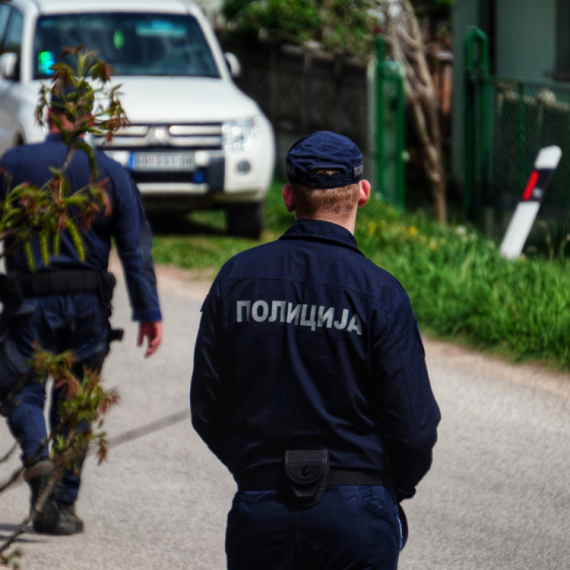




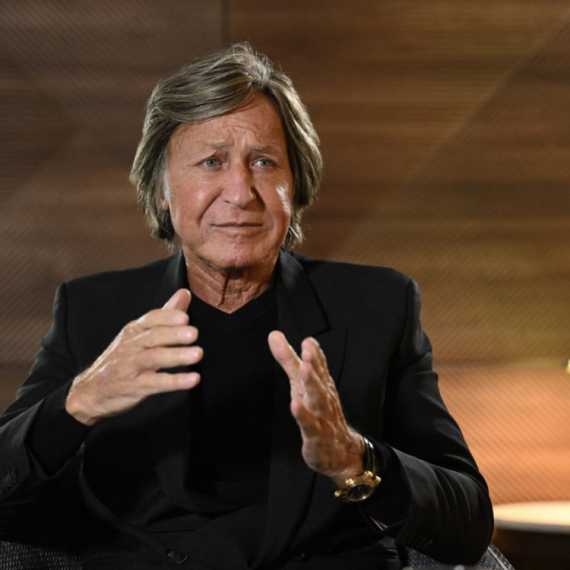
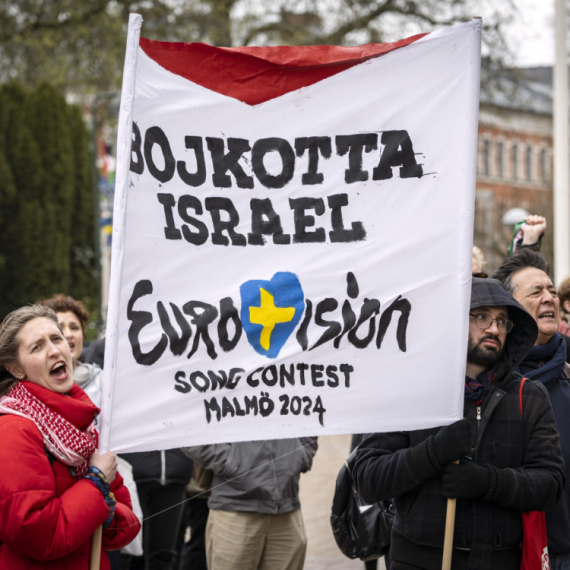
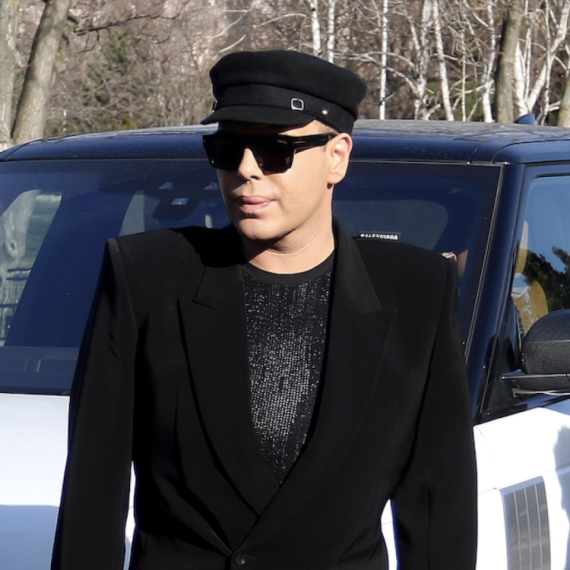
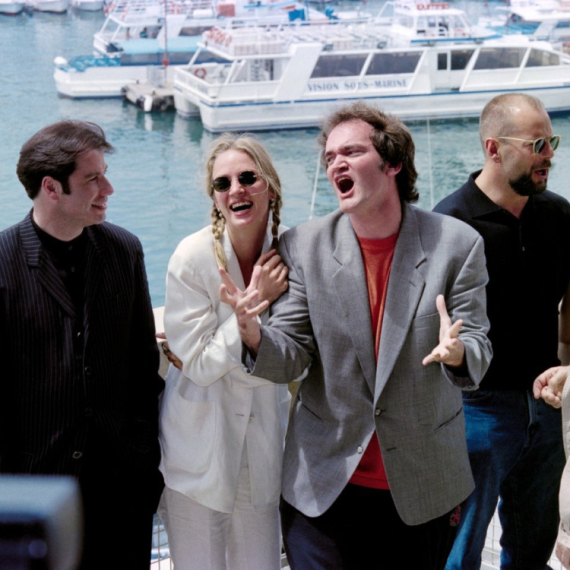





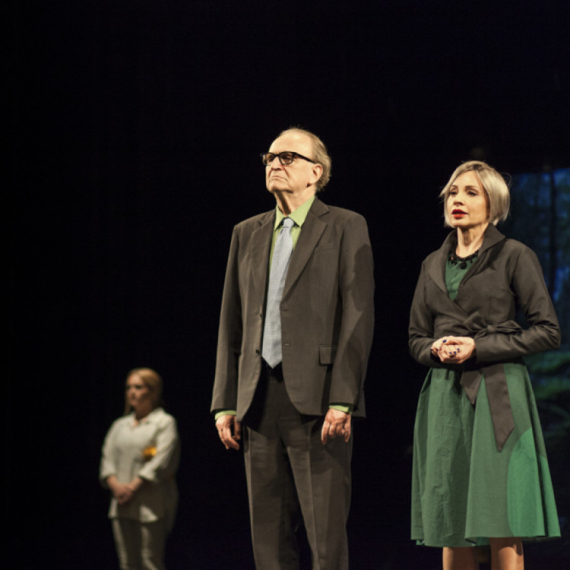









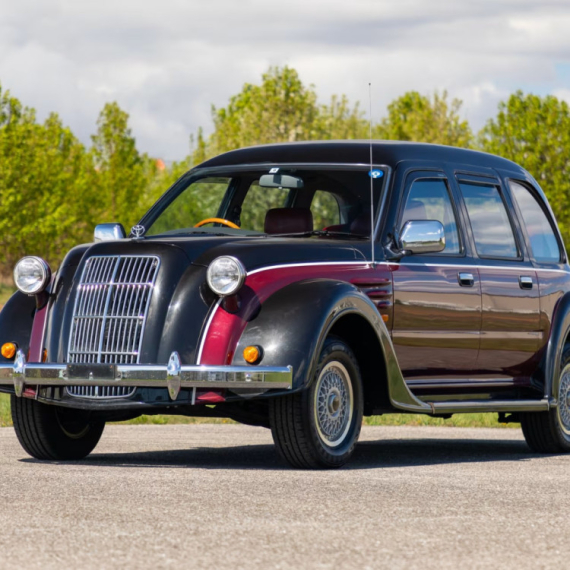


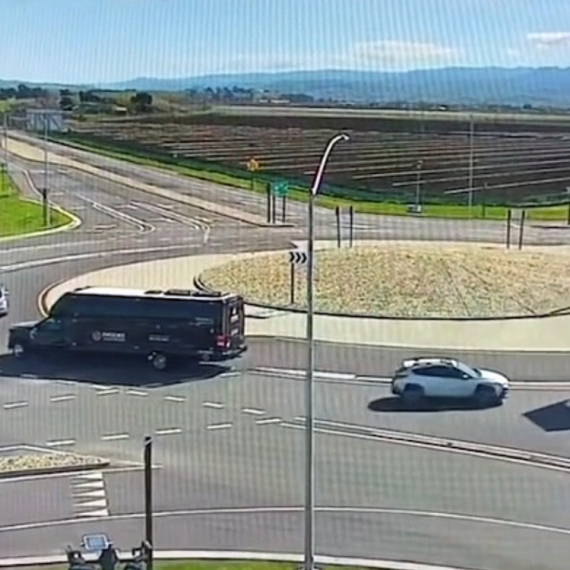
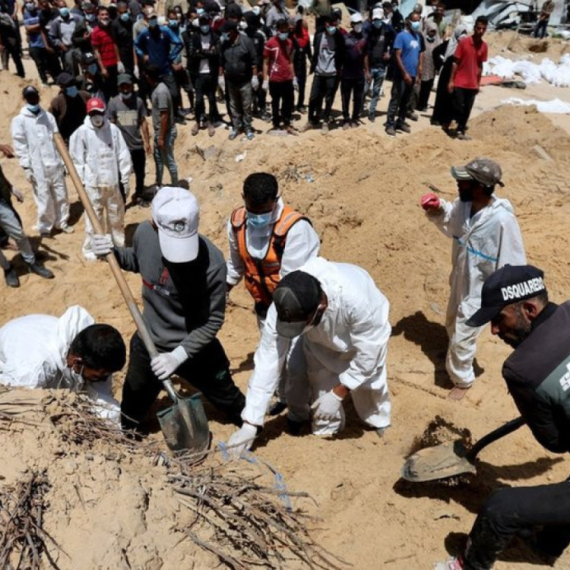





Komentari 0